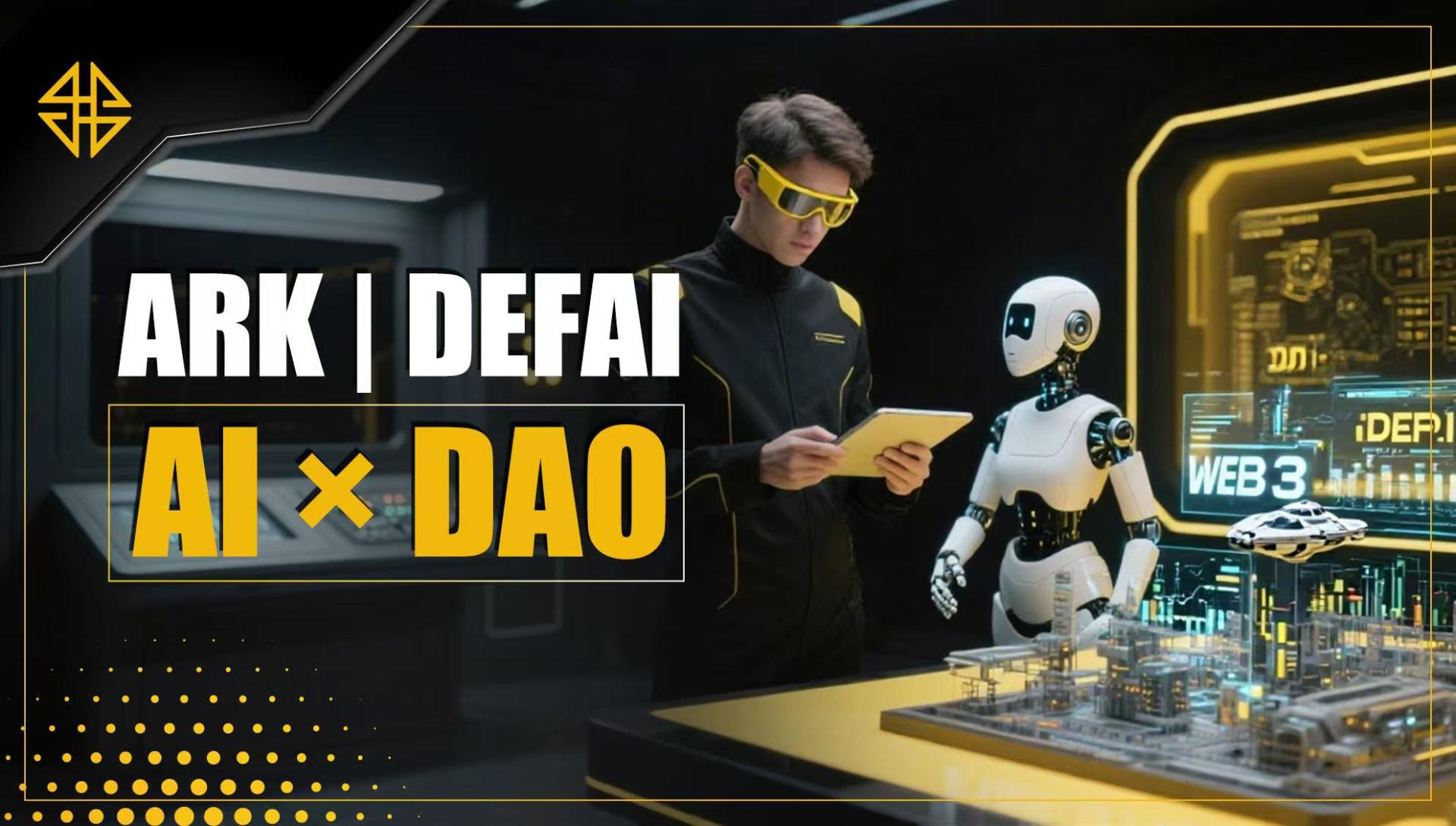
From Wall Street to Wallets: ARK DEFAI Redefines the Architecture of Finance
Tortola, British Virgin Islands, July 4th, 2025, Chainwire
ARK DEFAI, a decentralized intelligence framework, is pioneering a shift from traditional financial structures to transparent, programmable coordination systems powered by artificial intelligence and DAO-based governance.
For over a century, global finance was orchestrated by centralized institutions—banks, regulators, and intermediaries whose reputations stood as pillars of economic trust. Wall Street symbolized this structure, representing a tightly controlled flow of value governed by bureaucratic oversight.
Over the past decade, however, this paradigm has begun to shift. Authority is transitioning from institutions to protocols, from executive control to algorithmic consensus. In this new model, trust emerges not from legacy brands but from verifiable, transparent logic.
At the center of this transformation is ARK DEFAI—a modular, AI-governed digital framework that operates as a programmable coordination layer rather than a static platform or DeFi product.
“We’re not just redesigning financial incentives—we’re rethinking the very foundations of economic and social coordination,” said Carmelo Ippolito, a DAO governance researcher and core contributor to ARK DAO. “ARK is an experiment in digital sovereignty, where intelligent models enforce logic and the community safeguards values.”
Addressing Limitations of Traditional Financial Infrastructure
Legacy systems prioritize preservation and control, often resulting in opaque governance, limited participation, and slow responsiveness to innovation. Early decentralized finance (DeFi) projects offered alternatives, but many retained elements of the centralized systems they aimed to replace.
ARK DEFAI introduces an adaptable and intelligence-enhanced model that seeks to overcome these structural limitations.
A Modular Framework for Decentralized Coordination
ARK is composed of interoperable, upgradeable modules designed to coordinate value and decision-making without centralized control:
- Decentralized AI Agents simulate scenarios, forecast market behavior, and adjust protocol parameters in real-time.
- DAO-Based Governance incorporates community deliberation, reputation weighting, and AI-enhanced proposal screening.
- Composable Architecture allows core financial components—such as emissions, stability mechanisms, and lending pools—to function as modular smart contracts.
ARK contributors remain pseudonymous, reflecting a deliberate shift away from personality-driven trust toward auditable code and distributed consensus.
AI as Infrastructure
ARK’s governance engine comprises intelligent agents including:
- Predictive Models that assess potential outcomes and inform preemptive changes.
- Reinforcement Learners that optimize incentives and protocol settings based on live feedback.
- Sentiment Analysis Modules that detect shifts in community and market sentiment.
- Semantic Evaluators that review proposals for logic, feasibility, and potential systemic risks.
These agents are designed to complement—not replace—community decision-making by providing empirical insights.
A Self-Adjusting Economic Core
ARK features an AI-responsive economic system based on modular components:
- Emission Manager (EM) adjusts token issuance dynamically.
- Range Bound Stability (RBS) maintains stability corridors for price.
- Yield Revenue Feedback (YRF) allocates revenue toward buybacks or emission control.
- Minting Cap Limit (MCL) governs supply to preserve long-term economic stability.
- Runway Control Module (RCM) monitors sustainability metrics and adjusts protocol incentives accordingly.
This system replaces static treasuries with responsive, data-driven monetary coordination.
Governance as Interactive Co-Creation
ARK reimagines governance with:
- ARK Power NFTs that assign time-weighted voting rights.
- AI-Reviewed Proposals to ensure clarity and systemic alignment.
- Reputation-Based Influence to reward ongoing contributions.
- Simulation Tools enabling foresight into governance decisions.
Governance becomes an active process—participants co-create and guide the protocol’s evolution.
ArkLand: A Modular Digital Civilization
Beyond finance, ARK introduces ArkLand—a programmable ecosystem composed of AI-governed sectors:
- Finance (Arkonomics): Autonomous asset and liquidity management.
- Education (Edunet): Personalized AI tutoring and skill-building agents.
- Health (Vitality): Wellness and behavior optimization modules.
- Social (Connect): NFT-powered social agents and cultural tools.
- Creator Tools: Platforms for no-code AI module development and monetization.
Each sector evolves based on community engagement, with citizens shaping both logic and experience.
An Adaptive, Evolving Protocol
Instead of a fixed roadmap, ARK’s development is driven by real-time inputs:
- Protocol parameters evolve dynamically.
- Governance adapts through community and AI feedback.
- New modules and sectors emerge organically through contribution.
This design supports long-term adaptability and system resilience.
Redefining Trust Through Logic
ARK DEFAI proposes a future where programmable systems replace institutional gatekeeping. Trust is no longer established through hierarchy but through verifiable computation and transparent governance.
Currently in its Genesis Phase, ARK is focused on developing foundational infrastructure—combining modular economics, AI-enhanced coordination, and decentralized governance as a framework for intelligent digital societies.
About ARK DEFAI
ARK DEFAI is a decentralized intelligence framework built at the intersection of artificial intelligence, DAO governance, and modular on-chain architecture. Its infrastructure is designed to support adaptive, programmable coordination across financial and non-financial domains, driven by AI agents and community consensus.
Website: https://arkdefai.com
Twitter: https://x.com/ark_defai
